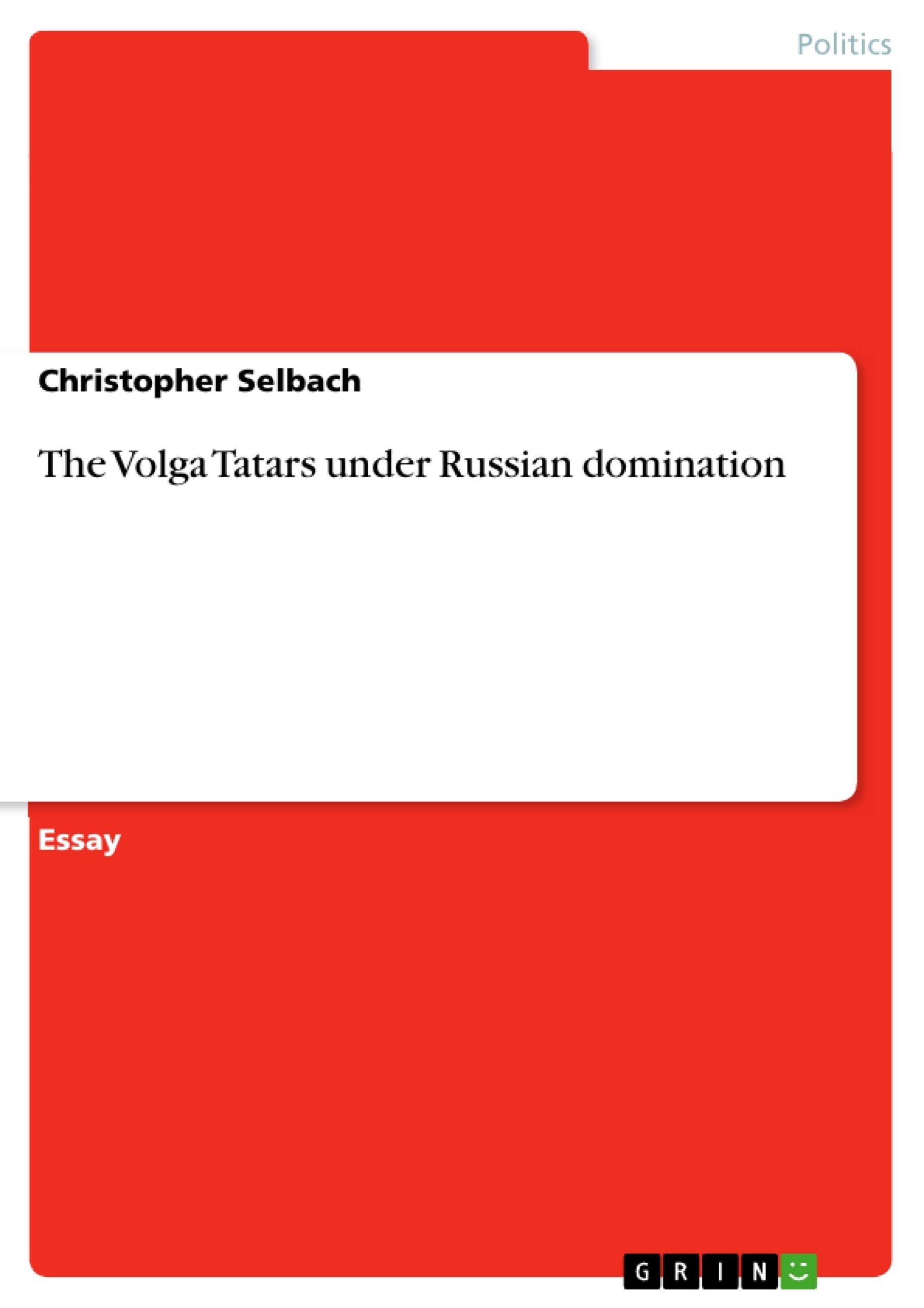In 1990 the Supreme Soviet of the Tatar ASSR declared the sovereignty of the Tatar state. Since then the political leaders of Tatarstan have pursued a self-conscious, but moderate national policy within the Russian Federation that has become a leading example for many other national republics. A constitutional guarantee of the sovereignty by the RF as envisaged by Tatarstan would officially bring to an end some 450 years of Russian domination of the Tatars and their country: a situation that could at best be compared with first attempts of independent statehood that followed the Revolution.
Is this, then, the story of a nation that at last is peacefully liberating itself from the Russian yoke that for centuries had threatened to bring indigenous national integrity to its knees? How severe was the damage done to the Volga Tatars, and has it been repaired?
To answer these questions, the essay considers first of all two early phases of independent statehood and thereby comes to a general understanding of the term "Volga Tatars". Secondly, it distinguishes several phases of Russian domination and discusses their respective effects on the Volga Tatars. Special attention will be devoted to the Soviet period, so that finally an assessment of the national efforts in the 1990s can be made.
Table of Contents
- Two Early Phases of Independent Statehood
- Several Phases of Russian Domination
- The First Phase (1552-1560s): Coercion and the Destruction of the Khanate
- The Second Phase: Integration of the Tatar Elite and Moderate Missionary Activity
- The Third Phase (17th Century): Reconversion to Islam and Forced Conversions to Orthodoxy
- The Fourth Phase (18th Century): Absolutist Empire and State-Supported Christianisation
- The Fifth Phase: Pragmatic and Liberal Policy
Objectives and Key Themes
This essay examines the extent to which Russian domination has negatively impacted the Volga Tatars and evaluates their success in rebuilding their nation. It focuses on the historical phases of Russian rule, particularly the Soviet period, to assess the damage inflicted and the subsequent efforts towards national revival in the 1990s.
- The evolution of Volga Tatar national identity under Russian rule
- The impact of Russian policies on the Volga Tatars' religious and cultural practices
- The role of the Volga Tatar elite in shaping their community's response to Russian domination
- The effects of economic and social changes on Volga Tatar society
- The emergence of Tatar nationalism and the pursuit of self-determination in the post-Soviet era
Chapter Summaries
The first section discusses two early phases of independent statehood, the kingdom of the Kama-Bulgars and the Khanate of Kazan, and examines the concept of "Volga Tatar" as a nation in these periods. The essay then delves into several phases of Russian domination, beginning with the conquest of Kazan by Ivan IV in 1552. The first phase is characterized by coercion, the destruction of the Khanate, and the forced expulsion of its citizens.
The second phase sees a shift towards a more pragmatic policy of integration, with the Russian government granting guarantees to the Volga Tatar elite and ending the persecution of Islam. However, missionary activity continued, aimed at converting the Tatars to Christianity. The third phase witnesses increasing reconversion to Islam and forced conversions to Orthodoxy, driven by state laws targeting the Muslim elite.
The fourth phase, marked by the absolutist empire of Peter I, sees a renewed emphasis on conversion with the establishment of the "Kontora novokrjašenskih del" aimed at weakening Islam and intensifying conversion measures. This period is characterized by forceful tactics and persecution of Muslim practices, resulting in increased alienation of the Volga Tatars from both Christianity and their Russian rulers.
The essay concludes this section with a brief overview of the fifth phase, highlighting Catherine II's move towards a more pragmatic and liberal policy, motivated by her enlightened convictions and the realization that Islam could contribute to the civilizing process.
Keywords
The main keywords and focus topics of this essay include Volga Tatars, Russian domination, national identity, Islam, Christianity, cultural and religious practices, the Volga Tatar elite, economic and social changes, nationalism, self-determination, and the post-Soviet era.
Frequently Asked Questions
What is the historical significance of 1552 for the Volga Tatars?
In 1552, Ivan IV (the Terrible) conquered the Khanate of Kazan, marking the beginning of over 450 years of Russian domination over the Volga Tatars.
How did Russian policy toward Islam change during the 18th century?
Under Peter I, there was a focus on state-supported Christianization and the persecution of Muslim practices. Later, Catherine II adopted a more pragmatic and liberal policy toward Islam.
What was the "Kontora novokrjašenskih del"?
It was an office established to weaken Islam and intensify missionary measures to convert Tatars to Orthodox Christianity through forceful tactics.
How did the Volga Tatar elite respond to Russian rule?
The elite often faced a choice between integration into the Russian system (sometimes through conversion) and leading national or religious resistance to maintain Tatar integrity.
What happened regarding Tatar sovereignty in the 1990s?
In 1990, the Tatar ASSR declared sovereignty, pursuing a moderate national policy within the Russian Federation to rebuild its national identity after the Soviet era.
- Quote paper
- Christopher Selbach (Author), 2001, The Volga Tatars under Russian domination, Munich, GRIN Verlag, https://www.grin.com/document/16470



